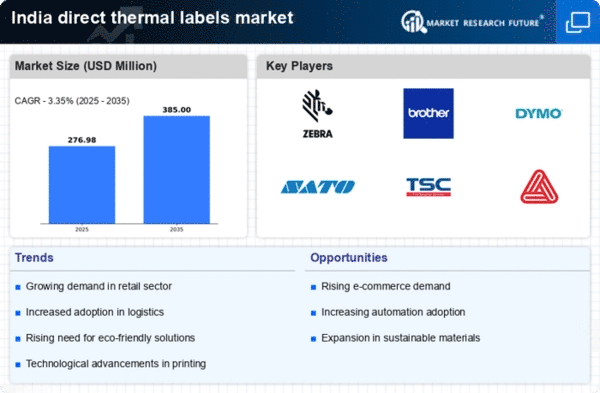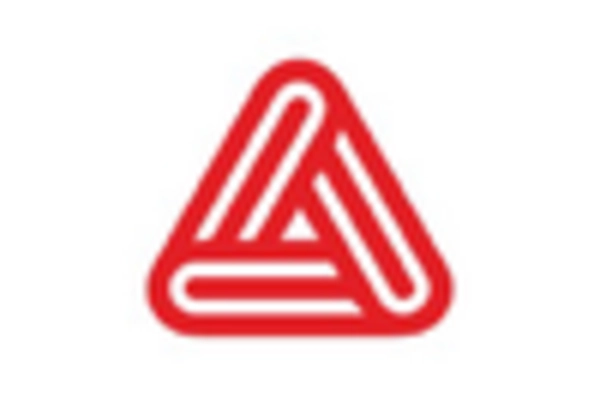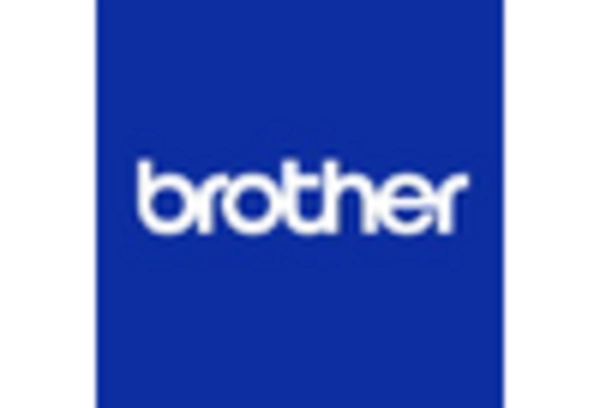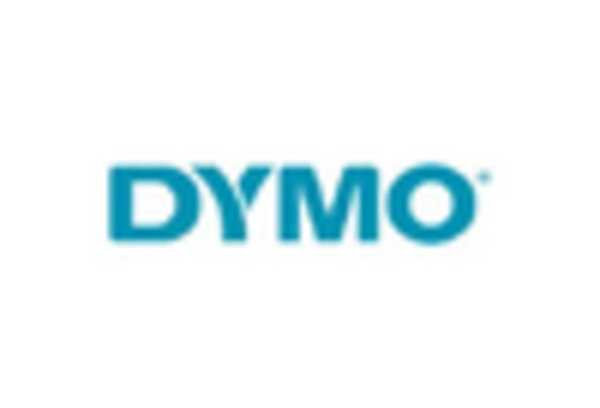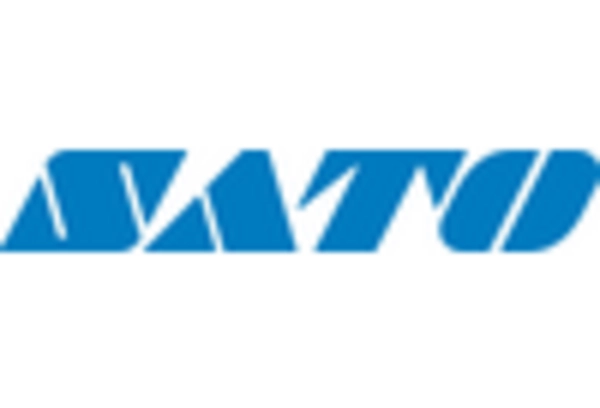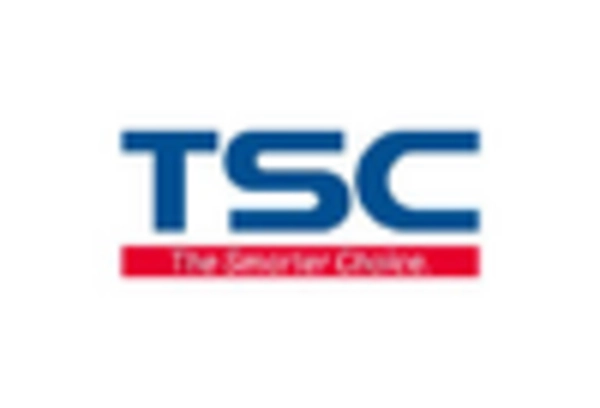Growth of Retail Sector
The expansion of the retail sector in India is a pivotal driver for the direct thermal-labels market. As retail sales continue to rise, the demand for efficient labeling solutions increases correspondingly. In 2025, the retail market in India is projected to reach approximately $1 trillion, indicating a robust growth trajectory. This growth necessitates the adoption of direct thermal-labels for inventory management, pricing, and promotional activities. Retailers are increasingly seeking cost-effective and efficient labeling solutions to enhance operational efficiency. The direct thermal labels market is likely to benefit from this trend, as retailers prioritize quick and reliable labeling methods to meet consumer demands. Furthermore, the shift towards organized retailing and the proliferation of supermarkets and hypermarkets are expected to further bolster the demand for direct thermal-labels, making it a crucial component of the retail supply chain.
Consumer Preference for Customization
The increasing consumer preference for customized products is influencing the direct thermal-labels market in India. As brands strive to differentiate themselves in a competitive landscape, personalized labeling solutions are becoming essential. Direct thermal-labels offer flexibility in design and printing, allowing businesses to create unique labels that resonate with their target audience. This trend is particularly evident in sectors such as cosmetics, food, and beverages, where branding plays a crucial role in consumer decision-making. The direct thermal-labels market is likely to benefit from this shift towards customization, as companies seek to enhance their brand identity through innovative labeling solutions. Additionally, the ability to quickly adapt labels for seasonal promotions or limited editions aligns with consumer expectations for novelty, further driving the demand for direct thermal-labels.
Regulatory Compliance and Standardization
Regulatory compliance is becoming increasingly important in various industries in India, which is driving the demand for direct thermal-labels. Industries such as pharmaceuticals, food and beverage, and chemicals are subject to stringent labeling regulations to ensure safety and traceability. The direct thermal-labels market is likely to see growth as companies strive to meet these regulatory requirements. For instance, the Food Safety and Standards Authority of India (FSSAI) mandates specific labeling standards for food products, which necessitates the use of high-quality labels that can withstand various conditions. This regulatory landscape encourages manufacturers to adopt direct thermal-labels that provide clear and durable information. As compliance becomes a priority, the direct thermal labels market is expected to expand, catering to the needs of industries that require precise and reliable labeling solutions.
Technological Integration in Manufacturing
The integration of advanced technologies in manufacturing processes is a key driver for the direct thermal-labels market. As industries in India adopt automation and smart manufacturing practices, the need for efficient labeling solutions becomes paramount. Direct thermal-labels are compatible with automated labeling systems, which enhances production efficiency and reduces labor costs. The manufacturing sector in India is projected to grow at a CAGR of 12% from 2025, indicating a strong demand for innovative solutions. This growth is likely to spur investments in labeling technologies, including direct thermal-labels, as manufacturers seek to optimize their operations. Furthermore, the ability to print high-quality labels on-demand aligns with the just-in-time manufacturing approach, making direct thermal-labels an attractive option for manufacturers aiming to improve their supply chain efficiency.
Increase in Logistics and Supply Chain Activities
The logistics and supply chain sector in India is experiencing significant growth, which is likely to drive the direct thermal-labels market. With the rise of e-commerce and the need for efficient distribution networks, logistics companies are increasingly adopting advanced labeling solutions. The Indian logistics market is expected to reach $215 billion by 2025, highlighting the growing importance of efficient supply chain management. Direct thermal-labels are favored for their ability to withstand various environmental conditions and their compatibility with automated systems. This trend indicates a shift towards more streamlined operations, where accurate labeling is essential for tracking and inventory management. As logistics companies seek to enhance their operational efficiency, the direct thermal-labels market is poised to benefit from increased demand for reliable and durable labeling solutions.


